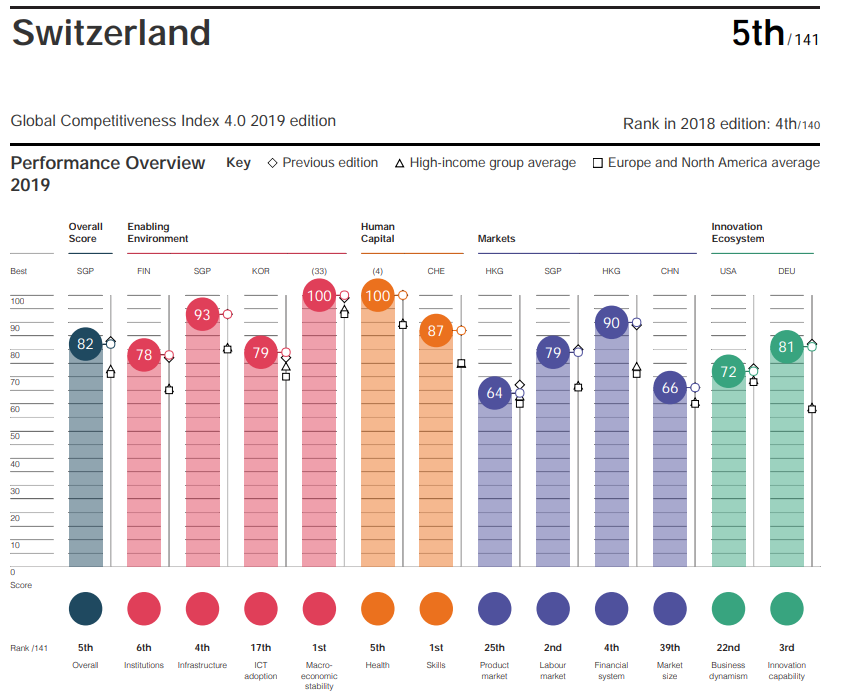For a country that fits into the state of California 10 times, Switzerland punches above its weight when it comes to global competitiveness.
In the World Economic Forum’s latest Global Competitiveness Report, it comes in fifth overall - but tops the ranking for skills.
“Switzerland’s performance is outstanding in areas related to human capital,” the report notes.
he country was ranked the best in the world for vocational training, on-the-job training and the employability of its graduates.
 Image: The Global Competitiveness Report
Image: The Global Competitiveness Report
So what is Switzerland doing right when it comes to skilling its workforce?
Up to 70% of secondary school students take part in its ‘gold-standard’ vocational education training system (VET), according to a 2015 report by the Center for International Education Benchmarking (CIEB).
From age 16, most young people stop full-time education, instead rotating between school, inter-company courses and hands-on experience in a workplace setting for three-to-four years, receiving both a wage and a crucial introduction to the world of work.
‘Strong support’ from employers
The CIEB report says the VET system, in which 30% of Swiss companies partcipate, prepares a broad cross-section of students for careers in a range of occupations and sectors.
“It enjoys very strong support from Swiss employers, who credit it with being a major contributor to the continuing vitality and strength of the Swiss economy.”
The country benefits from a pipeline of young-professional talent, it says, low youth unemployment in the single digits and the skilled workforce needed to produce high-quality goods and services.
Because of this focus on vocational training, there’s also less emphasis placed on getting a degree. Less than a third of young people under 25 went into tertiary education in 2012, compared to more than half of those in Australia and Norway, according to figures from the Organisation for Economic Co-operation and Development (OECD).
 Entry rates into tertiary education around the world in 2012.Image: OECD
Entry rates into tertiary education around the world in 2012.Image: OECD
Matthias Ammann, a fellow at economic think-tank Avenir Suisse, told Times Higher Education: “A lot of voices say we should keep [university enrolment] at this level because vocational education training is the reason why Switzerland is doing so well at the moment.”
In fact, many apprentices who have gone down the vocational training route end up with better job prospects than graduates - including Sergio Ermotti, the chief executive of Swiss bank UBS, who started his career on an apprenticeship at a local bank.
In the Global Competitiveness Report, Switzerland was also judged the best for staff training, with many companies recognizing the benefits of professional development.
Finland, which came top in the skills category in last year’s Global Competitiveness Report, dropped to second place this year - but is still judged to be the best country for teaching critical thinking and digital skills.
Kate Whiting, Senior Writer, Formative Content

